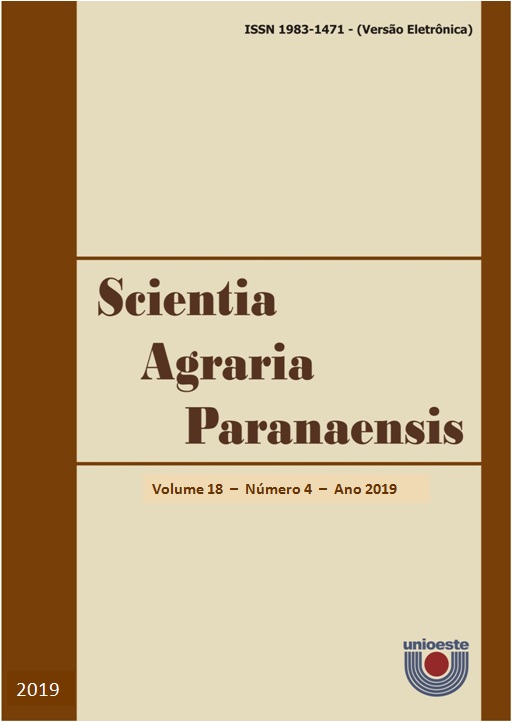Zinc as promoter of growth and biochemical activity in basil cultivars under in vitro conditions
DOI:
https://doi.org/10.18188/sap.v18i4.21909Resumo
In vitro cultivation of basil allows the manipulation of the concentration of certain micronutrients, commonly neglected by the micropropagation protocols. It is a plant of great economic importance for the cosmetic and pharmaceutical industry, due to the components present in its essential oil. In view of the above, the objective of this study was to evaluate zinc (Zn) concentrations in the micropropagation of basil, in addition to antioxidant activity and total phenolic compounds. Basil seeds, cultivars Manolo and Grecco Palla were oxygenated for 4 h, passed through asepsis and placed in test tubes with MS medium supplemented with 30 g L-1 sucrose and 6.5 g L-1 agar and pH adjusted to 5.8. The treatments were composed by the addition or not of 25 μM of zinc sulfate (ZnSO4) and arranged in a completely randomized design. The tubes containing the seeds and the culture medium were kept in a growth chamber for 90 days. The cultivar Manolo was more sensitive to the addition of ZnSO4 due to the increase in the number of leaves and in the antioxidant activity, however, the addition of this component in the culture medium did not influence the production of phenolic compounds or the activity of the antioxidant enzymes SOD, CAT and APX.
Downloads
Publicado
Como Citar
Edição
Seção
Licença
Aviso de Direito Autoral Creative Commons
Política para Periódicos de Acesso Livre
Autores que publicam nesta revista concordam com os seguintes termos:
1. Autores mantém os direitos autorais e concedem à revista o direito de primeira publicação, com o trabalho simultaneamente licenciado sob a Licença Creative Commons Attribution que permite o compartilhamento do trabalho com reconhecimento da autoria e publicação inicial nesta revista.2. Autores têm autorização para assumir contratos adicionais separadamente, para distribuição não-exclusiva da versão do trabalho publicada nesta revista (ex.: publicar em repositório institucional ou como capítulo de livro), com reconhecimento de autoria e publicação inicial nesta revista.
3. Autores têm permissão e são estimulados a publicar e distribuir seu trabalho online (ex.: em repositórios institucionais ou na sua página pessoal) a qualquer ponto antes ou durante o processo editorial, já que isso pode gerar alterações produtivas, bem como aumentar o impacto e a citação do trabalho publicado (Veja O Efeito do Acesso Livre).
Licença Creative Commons
Esta obra está licenciada com uma Licença Creative Commons Atribuição-NãoComercial-CompartilhaIgual 4.0 Internacional, o que permite compartilhar, copiar, distribuir, exibir, reproduzir, a totalidade ou partes desde que não tenha objetivo comercial e sejam citados os autores e a fonte.


